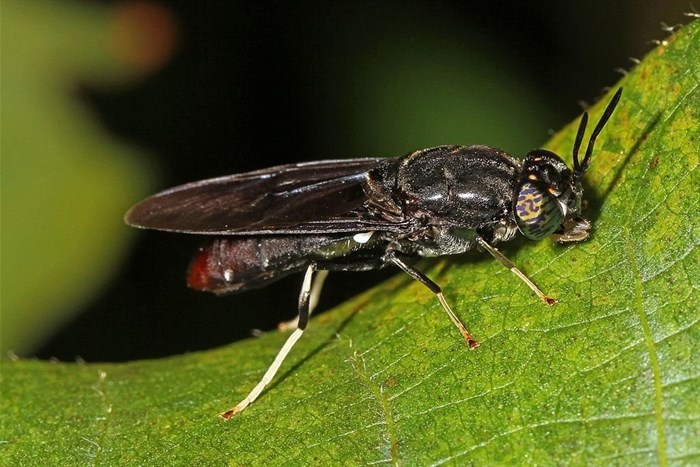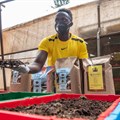Maltento is transforming South Africa's recycling scene by cultivating Black Soldier Flies. These insects are utilised to repurpose agro-processing waste, such as leftover grains from the beer industry into nutrient-rich proteins, and oils for use in pet and aquaculture feed.
After winning the Startup Club ZA award in November last year, and having recently secured a substantial R12m grant from the German Development Bank, Maltento is carving its path as a key player in South Africa’s sustainable agriculture landscape.
Spent brewers’ grain is ingested by fly larvae at the Maltento Fly Farm, enriching their natural ability to produce functional proteins, healthy fats, and essential amino acids. Beyond protein, soldier fly larvae also produce frass, a by-product (excrement of the spent brewery grains) with substantial nutritional value.
Frass serves as a composted soil amendment product, enhancing soil fertility, building plant immunology, promoting nutrient cycling, and improving soil structure.
"Frass can be used in a closed-loop system for fields where brewery grains are cultivated, creating a sustainable cycle that regenerates the soil and contributes to healthy grain growth. This closed-loop system is free of heavy metals and pesticides. Our factory currently diverts approximately 400,000 kg of agro-processing waste and byproducts every month, and we project that we’ll reach up to 600,000 kg per month by year-end," shares Maltento COO, Jaysen Golding.
This exciting development not only revolutionises the pet food and beer industries but also positions South African scientists as global leaders in agro-processing and sustainability practices within the beer industry.
Brewing beer in SA: Good for our pets and the planet
With a team of 65 employees at the 7,000 m2 factory in Cape Town, Maltento has successfully produced 75 metric tonnes of product since its operations began and aims to reach a whopping 100 metric tonnes by June 2024.
To make this a reality, the company is calling on all large-scale breweries across the country to align with its vision for improved agricultural practices within the beer sector by joining them in making the industry more sustainable.
Rich in functional proteins, fats, and essential nutrients, the company uses the black soldier fly’s larvae to provide a sustainable and nutrient-dense alternative to traditional feed sources. By taking recycled waste from the beer-making process and feeding it to the larvae, its team can create a feed solution that is both functionally, economically, and environmentally friendlier than animal-based protein, which uses 95x more natural resources per kilogram than insect-based protein.
The black soldier fly protein is also hypoallergenic, contains antimicrobial peptides, and can offer support for overall gut health in pets and fish.
Frass: Transforming agriculture and sustainability in SA
The black soldier flies larvae produce another by-product that has the ability to revolutionise the soil industry: Frass. Frass is the nutrient-dense excrement of black soldier fly larvae. This substance holds substantial value, serving as a composted soil amendment product that can be used on any farm or local vegetable garden to promote soil fertility, nutrient cycling, and improved soil structure.
Frass can also be used to create a closed-loop system for fields where brewery grains are cultivated. Its application to the area helps to regenerate the soil and planting areas, allowing more grain to grow in healthy soil.
Once the grain is harvested and spent, it is sent to agro-processing factories to be fed to the larvae, which in turn creates more frass, which is then fed back into the soil once again. The fly farm aims to reintroduce approximately 1 444 metric tonnes of frass into South African soil by the end of this year.
Frass is a soil amendment product that has no heavy metals or pesticides and outcompetes any other organic or non-organic product on the market today.
Maltento is currently offering corporates in the food and beer industry across South Africa’s main metropole offtakes in frass that can be used to optimise their corporate gardens and potentially regenerate the fields in which their grains are cultivated.
The frass produced by the fly farm is currently being used on farms up the West Coast and should be available to local communities in Khayelitsha and the Cape Flats from February 2024. The company says that it is willing to donate frass to interested parties from the City of Cape Town to showcase the power of this regenerative by-product





































